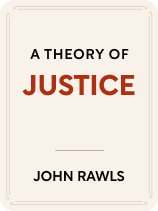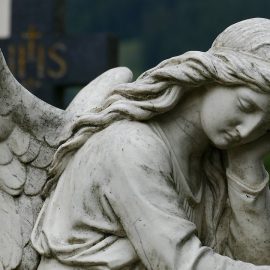
This article is an excerpt from the Shortform book guide to "A Theory of Justice" by John Rawls. Shortform has the world's best summaries and analyses of books you should be reading.
Like this article? Sign up for a free trial here.
What is John Rawls’s philosophy of justice? What does a just society look like in Rawls’s eyes? Does Rawls prescribe any universal rules of justice?
Rawls argues that a just society would have duties that fit its specific circumstances. However, he does emphasize three duties that must be followed to promote the common good while still allowing citizens to pursue their own self-interest.
Let’s explore each and examine how they accomplish this goal.
Duty #1: Follow Existing Just Rules
The first duty is to follow existing rules and laws in society that are just. This duty ensures citizens will follow the principles Rawls believes will work toward the common good.
In addition, this duty helps preserve social stability—something else that Rawls believes is a common good. It does so by ensuring citizens use existing political methods (voting, for example) to accomplish their goals instead of more radical, destabilizing methods that go against existing laws (violent protests or civil disobedience, for example). Rawls argues that citizens should only use these more drastic measures to address major injustices or violations of the principles of justice as fairness.
(Shortform note: By warning against radical methods of social change, Rawls argues for a version of “enlightened conservatism,” or the philosophy of pursuing social reform through gradual, stable changes. Enlightened conservatives like 18th-century Anglo-Irish politician Edmund Burke believed that the best way to improve society was through empirically proven gradual reforms—in other words, making many small political changes over time based on what people know will work in practice while maintaining the stability of society overall. Burke goes farther than Rawls, arguing against all radical social reforms regardless of the injustices they try to address, saying they are too destabilizing and unproven to be worth the risk.)
Duty #2: Create Just Rules
The second duty citizens have is to help create just rules if they don’t exist—as long as doing so isn’t at a great personal cost. This duty ensures citizens will continue working to make their society more just, another common good. In addition, it allows citizens to pursue the common good in a way that doesn’t interfere with their own personal interests, since they won’t have to give up too much in their pursuit of a just society.
For example, while citizens might have a duty to advocate or vote for a just public housing policy, Rawls doesn’t believe they’re obligated to allow homeless people to move in with them.
(Shortform note: While in John Rawls’s philosophy, citizens aren’t obligated to make great sacrifices to address injustice, some philosophers go as far as to say people shouldn’t. This is a classic idea in liberal philosophy, one that today is sometimes known as “effective altruism”: the theory that people can do greater overall good for society by working toward their own personal (usually economic) well-being. Versions of this theory exist in the works of classic liberals like Adam Smith as well as contemporary philosophers like Peter Singer. The basic idea behind it is that by pursuing your own well-being, you have more wealth available that you can use charitably or contribute to society, thereby creating a larger positive impact on the world.)
Duty #3: Mutually Respect Fellow Citizens
Rawls’s third duty requires citizens to be polite and respect one another. This means making a genuine attempt to understand others as well as having a certain degree of honesty, integrity, and generosity. This duty provides everyone a common good—living in a society full of considerate and helpful people—without harming the personal goals and interests of citizens much.
(Shortform note: Some social theorists argue not only that individuals should mutually respect each other, but that the government should legislate mutual respect in some way—often through penalties on minor offenses and an emphasis on public order. For example, Singapore has a number of strict laws enforcing a kind of mutual respect through public order. These include significant fines and punishments for vandalism, chewing gum, littering, and even failing to flush public toilets. Lee Kuan Yew, the first prime minister of an independent Singapore, viewed these measures as part of a larger campaign to make the country orderly and clean, while critics view these measures as part of the country’s broad police and state overreach.)

———End of Preview———
Like what you just read? Read the rest of the world's best book summary and analysis of John Rawls's "A Theory of Justice" at Shortform.
Here's what you'll find in our full A Theory of Justice summary:
- John Rawls's 1971 theory of justice as fairness
- A breakdown of Rawls's Original Position theory and framework
- The three duties every citizen has in a just society






